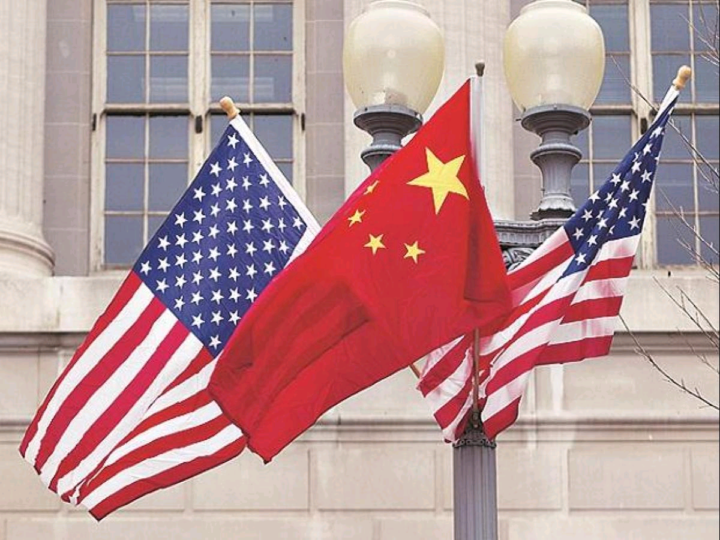Jake Sullivan, the National Security Advisor to President Joe Biden, reaffirmed the United States’ commitment to a peaceful and cooperative relationship with China during a high-profile meeting with Chinese President Xi Jinping in Beijing on Thursday.
Amid global concerns over rising tensions between the two superpowers, Sullivan emphasised that the U.S. is not seeking a new Cold War or attempting to alter China’s political system.
Sullivan’s visit to Beijing represents a continued effort by both nations to stabilise their complex relationship.

The dialogue between Sullivan and President Xi covered a wide range of topics, including economic cooperation, security concerns, and the future of U.S.-China relations.
Sullivan conveyed President Biden’s regards to President Xi and highlighted the importance of direct communication between the leaders of both countries.
Reflecting on the progress since the San Francisco Summit between President Biden and President Xi, Sullivan noted that both leaders had worked diligently to implement their shared understandings.
This summit had marked a pivotal moment in the ongoing dialogue, setting the stage for more constructive and substantive exchanges between the two nations.
Sullivan recounted his previous discussions with Chinese Foreign Minister Wang Yi, describing them as “in-depth, candid, substantive, and constructive.”
These talks aimed at finding common ground on various strategic issues, demonstrating the willingness of both sides to engage in meaningful dialogue despite their differences.
He reiterated that the U.S. does not view the revitalisation of its alliances, particularly in Asia, as a move against China, but rather as a strategy to ensure regional stability and mutual prosperity.
“The United States does not seek a new Cold War; it does not seek to change China’s system,” Sullivan stated emphatically.
He further clarified that the U.S. does not support Taiwan’s independence and does not intend to use Taiwan as a tool to contain China, reaffirming the long-standing One-China policy.
This statement comes at a time when tensions over Taiwan have been a major point of contention, with China viewing any support for Taiwanese independence as a direct challenge to its sovereignty.
Sullivan underscored that the U.S. is committed to maintaining strategic communication with China and is eager to find pathways for the two nations to coexist peacefully.
He expressed confidence in the potential for U.S.-China relations to develop in a sustainable manner, built on mutual respect and shared interests.
This approach aligns with broader international expectations that the world’s two largest economies should work together to address global challenges, such as climate change, economic stability, and public health crises.
Sullivan also conveyed that President Biden looks forward to future communications with President Xi, highlighting the importance of continued dialogue at the highest levels.
The Biden administration has consistently advocated for direct engagement with China as a means to manage competition and avoid misunderstandings that could lead to conflict.
Earlier in the meeting, President Xi emphasised the need for solidarity and cooperation in a world that is increasingly characterised by change and turbulence.
He argued that countries should seek to foster openness and progress rather than division and regression. Xi’s remarks reflect China’s position that international relations should be guided by mutual respect and cooperation rather than rivalry and confrontation.
The exchange between Sullivan and Xi serves as a reminder that while U.S.-China relations are fraught with challenges, there remains a strong desire on both sides to find common ground and work towards peaceful coexistence.
The dialogue highlights the potential for both nations to act as stabilising forces on the global stage, rather than adversaries locked in a zero-sum game.
As both countries navigate the complexities of their bilateral relationship, the focus on strategic communication and mutual respect is crucial.
The U.S. and China have an opportunity to set an example for the world by managing their differences through diplomacy and constructive engagement, rather than through conflict and competition.
The future of U.S.-China relations will depend on the ability of both nations to not only address their disagreements but also to identify and act on areas of shared interest.
Whether it is through collaboration on climate action, promoting global economic stability, or managing regional security concerns, the U.S. and China have the potential to lead the way towards a more cooperative and interconnected world.
Support InfoStride News' Credible Journalism: Only credible journalism can guarantee a fair, accountable and transparent society, including democracy and government. It involves a lot of efforts and money. We need your support. Click here to Donate
